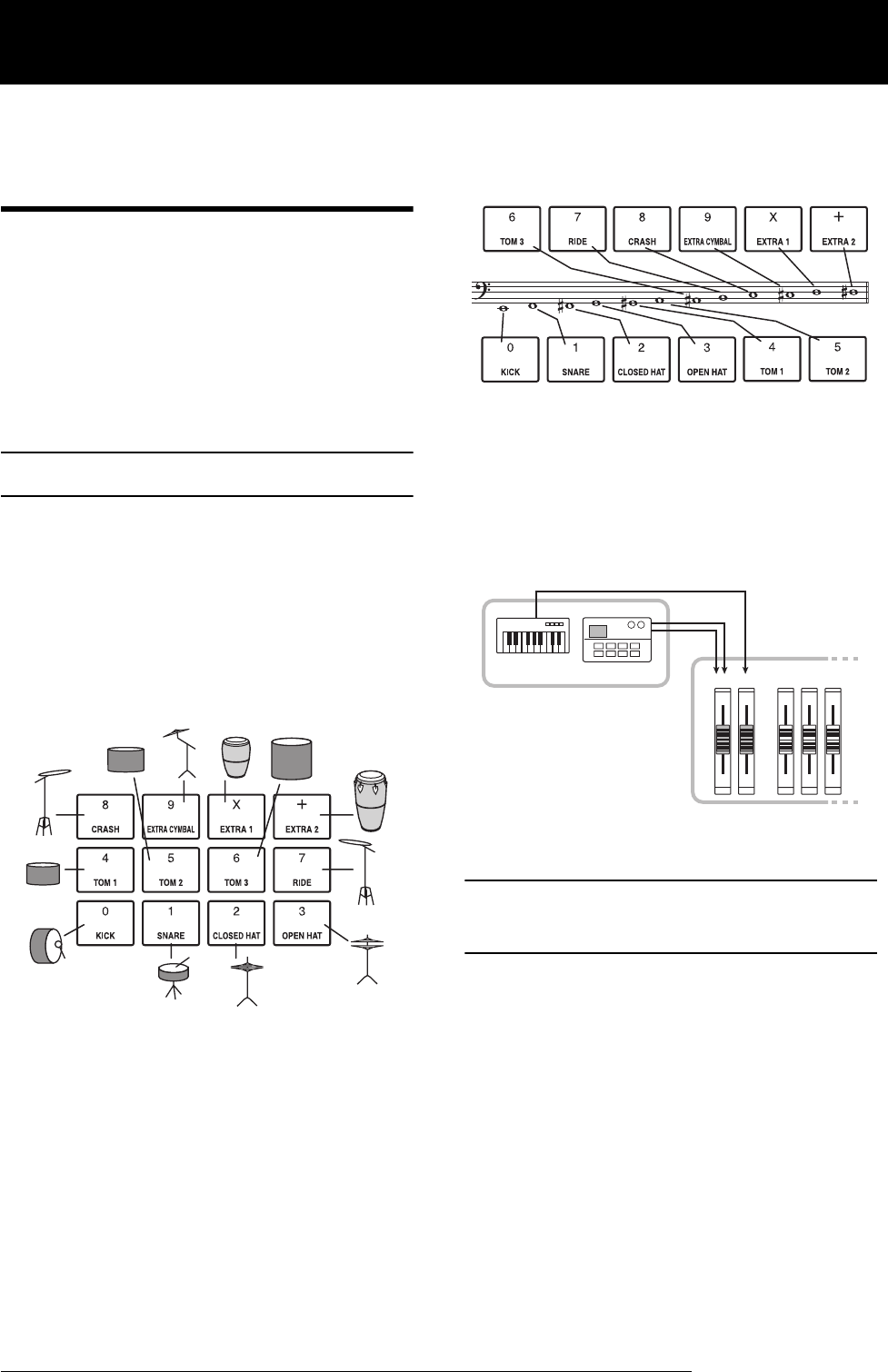
Reference [Rhythm]
ZOOM MRS-1266
86
About the rhythm section
The “rhythm section” of the MRS-1266 contains drum
sounds and bass sounds, and can be used as a drum + bass
machine. The rhythm section can be operated in
synchronization with the recorder section, or operated
independently. Here we will explain the basic concepts and
terms that you need to know in order to use the rhythm
section.
Drum kits and bass programs
The accompaniment created by the rhythm section is
produced by a “drum kit” and a “bass program”.
The drum kit is a set of 36 drum/percussion sounds such as
kick, snare, and conga, and the MRS-1266 contains 127
different drum kits. You can select one of these drum kits,
and use the front panel pads 1 - 12 to manually play each
sound, or use them as a sound generator for accompaniment.
A bass program is a single bass sound, such as an electric
bass or acoustic bass. You can choose one of the 26 different
bass sounds built into the MRS-1266, and use the front panel
pads 1 - 12 to play a scale, or use it as a sound generator for
accompaniment.
The output signal from the drum kit (stereo) and the output
signal from the bass program (mono) are internally
connected to the DRUM channel and BASS channel of the
mixer section. For each, you can independently adjust the
volume, pan/balance, and EQ, and apply send/return effects.
Rhythm patterns and the drum/bass
tracks
A newly created project contains accompaniment patterns
with drum/bass performance data for up to 99 measures
each. These accompaniment patterns are called “rhythm
patterns”. The MRS-1266 can hold more than 400 such
patterns.
Inside each rhythm pattern, the area that holds the drum
performance data is called the “drum track”, and the area
that holds the bass performance data is called the “bass
track”.
Rhythm section
Mixer section
Drum kit
Bass program
DRUM
BASS
123
Reference [Rhythm]
This section explains the functions and operation of the rhythm section, which uses internal drum sounds and bass sounds to
generate backing performances.


















